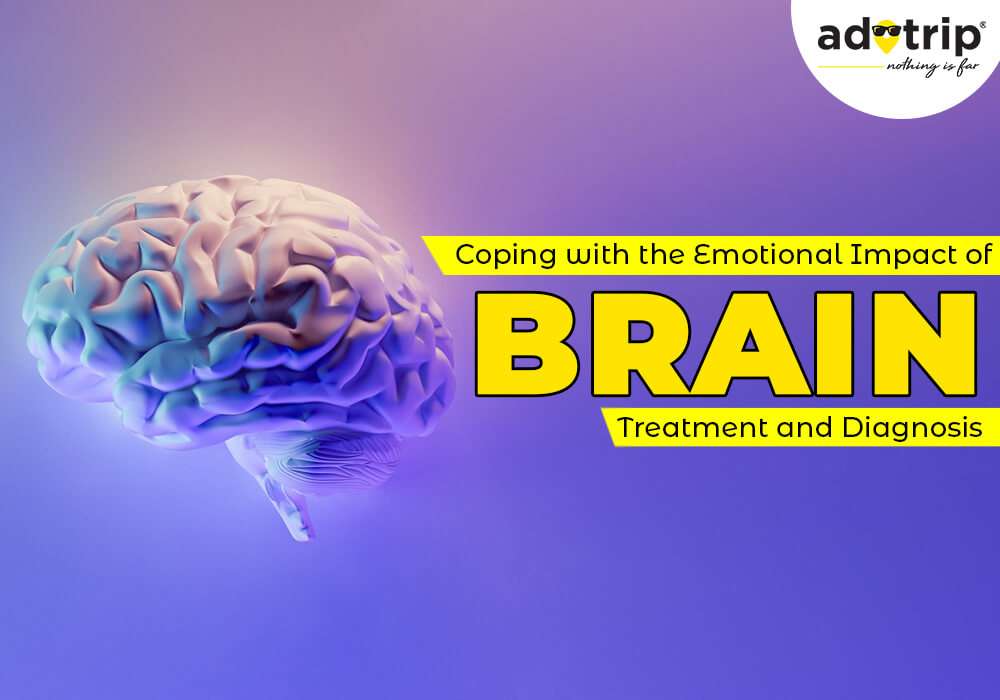
Coping with the side effects of treating brain tumours sometimes requires indomitable will and supportive care. Everyone reacts differently to this event, so it’s important not to assume what a person might feel. It’s also important to get support.
Your doctors can help you with this by using a variety of treatments to help manage the emotional impact of brain treatment. These may include surgery, chemotherapy, radiation therapy, and palliative care (care that focuses on making you as comfortable as possible during and after treatment).
When you have a brain tumour, the way your body and mind work can change. Your doctor or therapist will help you understand the changes and develop strategies for dealing with them. The physical effects of brain tumour treatment depend on the type of cancer and what kind of surgery or radiation therapy you have had. Here are some ways to cope with the physical side effects and emotional impact of brain treatment.
A brain tumour can make it hard to think clearly, feel well, and communicate effectively. These side effects may last a long time, and they are normal.
Treatment of a brain tumour can be challenging, especially if it is a rare type of tumour that requires specialised care and treatment, which cost expensive. This can include a visit to a specialist, a lengthy treatment course, and coping mechanisms for brain treatment. A brain tumour is an expensive disease. The high costs of treating a brain tumour can lead to financial hardships, which can cause the emotional impact of brain treatment, like stress and anxiety for patients and their families.
Despite significant advancements in research, these disparities can occur due to several factors, including structural and social inequities, bias, and discrimination from healthcare providers, and also responsible for the emotional impact of brain treatment. Some organisations help you with that.
Your doctor will present the most appropriate treatment options based on your type and stage of cancer. It can also help you to deal emotional impact of brain treatment. They will also consider your overall health, but you can choose a treatment plan.
Many side effects of cancer treatment can impact your day-to-day life. Fortunately, most side effects are manageable with careful planning and support from your medical team.
Timely medical intervention can help cure many of these ailments or help in managing them. You can also contact the expert doctors at Narayana Hospital based in your city to get immediate attention and medical support to treat brain conditions, neurological disorders or any other health concern.
Are you seeking medical tourism services in India that will look after you, ensuring you get the best treatment and scheduling your consultations? Adotrip is a one-stop shop for all of your healthcare requirements.
With us, nothing is far!
Ques 1. Can brain treatment cause emotional changes or mood swings?
Ans. Yes! A life-changing event like a cancer diagnosis and treatment can leave people with emotional feelings or mood swings like confusion, scared, anger, and insecurity.
Ques 2. How can I cope with emotional changes after brain treatment?
Ans. With time and help from family and friends, most patients find ways to cope with these feelings.
Ques 3. What are some common emotional side effects of brain treatment?
Ans. Your behaviour, thinking, and memory changes can occur after a brain tumour diagnosis or treatment. These changes can affect your day-to-day life and your ability to work, think clearly, and communicate.
Ques 4. Can medication help with the emotional side effects of brain treatment?
Ans. Yes! But for this, you need to consult with your doctor as they know your condition, so only they can suggest the best treatment to overcome the emotional side effects of brain treatment.
Ques 5. How long do emotional side effects of brain treatment typically last?
Ans. These emotional side effects remain for weeks to a few months.




